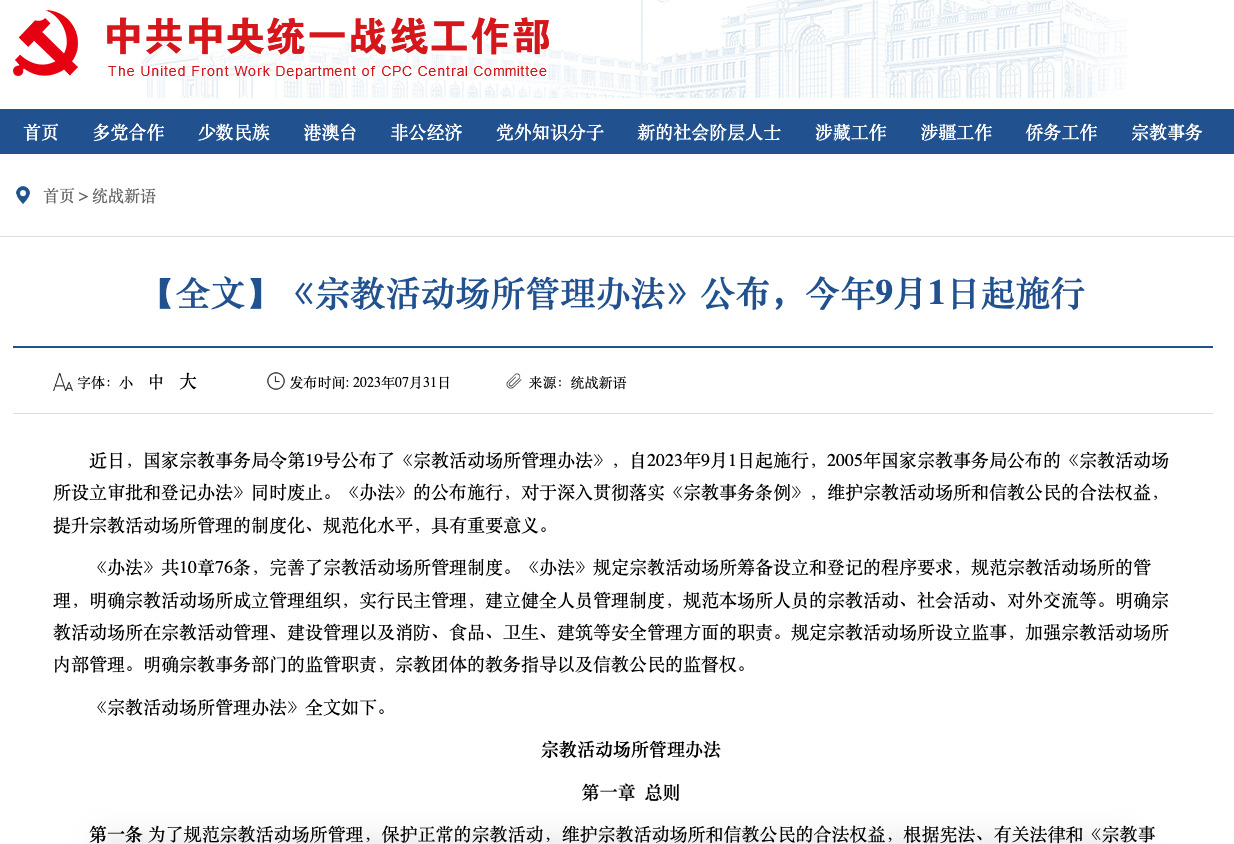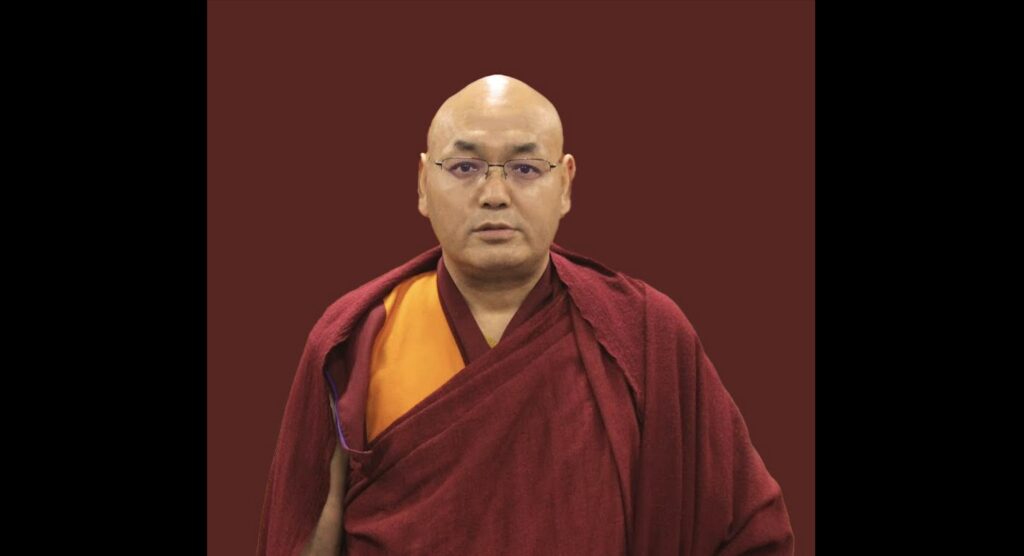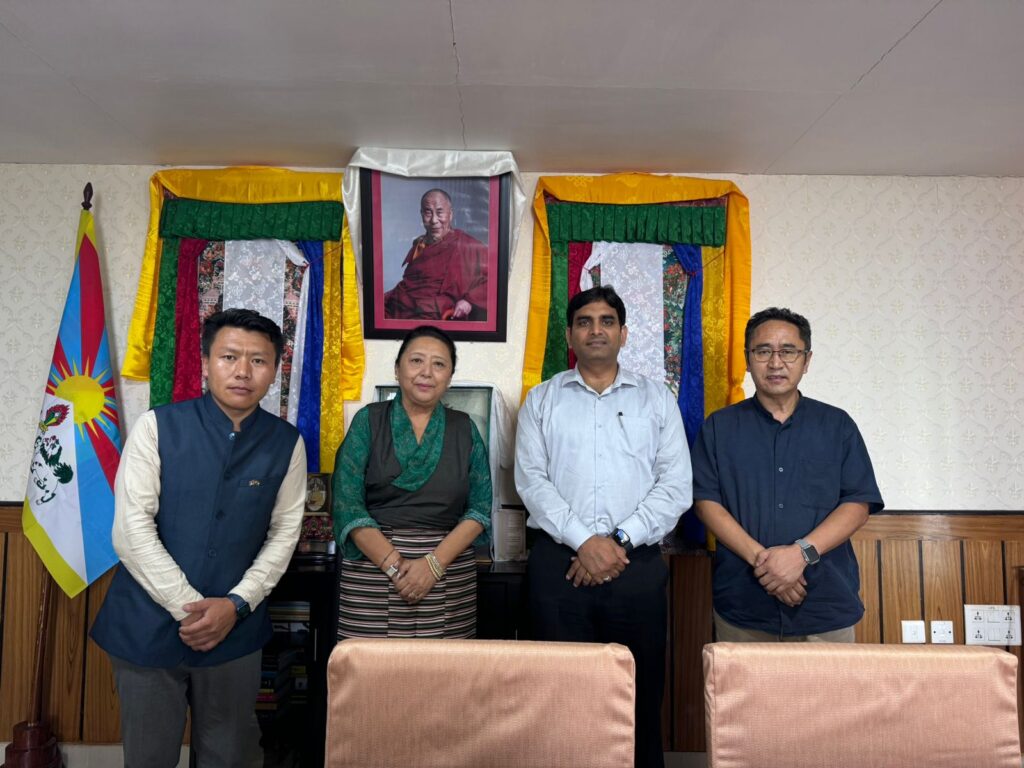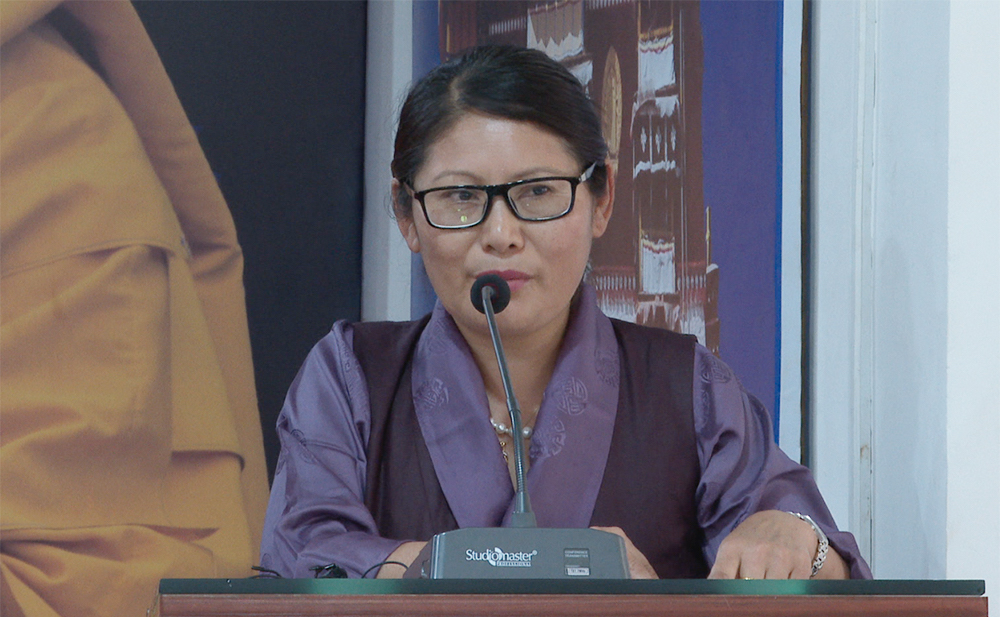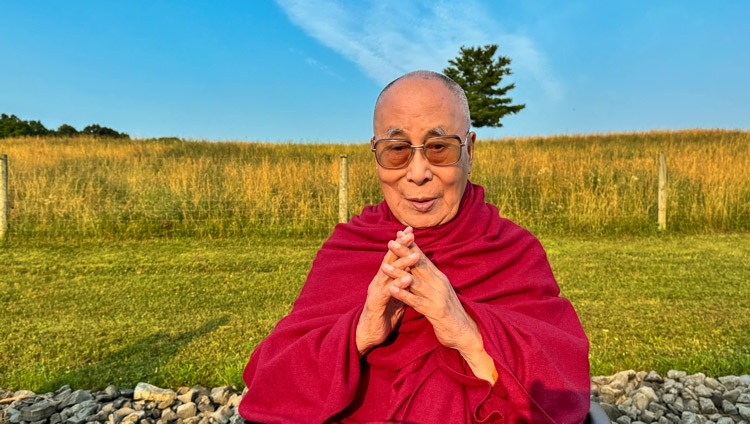Dharamshala: The Department of Information & International Relations (DIIR) is concerned about the new Chinese regulation which is set to go into effect on 1 September 2023 that will intensify restrictions on religious freedom inside Tibet and elsewhere in China. China’s State Administration for Religious Affairs promulgated the “Measures for the Administration of Religious Activity Sites” or the “Order Number 19,” marking a significant escalation in the People’s Republic of China (PRC) government’s ongoing crackdown on religious freedom.
The United Front Work Department of the PRC government announced the regulation on 31 July 2023 on its website. This regulation requires temples, monasteries, mosques, etc. to obtain official permission to carry out any religious activity that is targeted to strengthen and build a strong sense of Chinese nationalism. This will be achieved through publicity and education campaigns including promotion of Chinese language and “ethnic unity”.
These coercive measures, as well as a number of similar “orders,” are intended to maximise the PRC government’s control over Tibetan Buddhist cultural and political affairs. In particular, Article 27 of the Order No. 19 stipulates that members of the management organisation of religious activity sites must be “loyal supporters of the leadership and rule of the Chinese Communist Party” and “be mainland residents with Chinese nationality.” Under this unlawful regulation, Tibetan monasteries in Tibet that refuse to denounce His Holiness the Dalai Lama or express reverence and loyalty to His Holiness, whom the PRC considers as “separatist”, remain particularly vulnerable to face crackdown by the Chinese authorities.
The Legislative Persecution of Tibetan Buddhism
Buddhism is one of the only five officially recognised religions of China, and its “normal religious activities” are nominally protected under the thirty-sixth Article of the Chinese Constitution of 1982. Yet, the PRC government has frequently redefined and misinterpreted “normal” in order to justify further restrictions on constitutional freedoms in the name of maintaining social stability. The new measure forbids religious sites to restrain from carrying out activities that “endanger national security,” “disrupt social order” and among other things, “harm the national interest.” This vague and broad definition of “endangering national security” and “disrupting social order” not only criminalises political activities and exercise of fundamental human rights and freedom. But it also makes Tibetan Buddhist cultural and traditional activities susceptible to illegal persecution and punishment as and when the Chinese government deems necessary.
Since 1994, PRC authorities have extensively conducted “patriotic re-education” campaigns in Tibetan Buddhist monasteries and nunneries that encourage loyalty to the State and the denunciation of any support and allegiance for His Holiness the Dalai Lama. In 2010, the PRC government passed the “Order No. 8,” officially known as “Management Measures for Tibetan Buddhist Monasteries,” that increased the government’s management and control over the internal affairs of Tibetan Buddhist monasteries. By enacting the “Order No. 5” or “Management Measures for the Reincarnation of Living Buddhas in Tibetan Buddhism,” in 2007, the Chinese Communist Party claimed and asserted its “control of the process of recognising important reincarnations of Buddhist lamas,” with the long-term target of interfering in the process of selecting and recognising the 15th Dalai Lama.
Prior to the promulgation of Order No. 5 in 1995, China forcibly disappeared the 11th Panchen Lama, Jetsun Tenzin Gedhun Yeshi Trinley Phuntsok Pal Sangpo, following his recognition by His Holiness the Dalai Lama, as the reincarnation of one of the highest lamas of Tibetan Buddhism. The 11th Panchen Lama has remained disappeared for the last 28 years with no information available on his well being and whereabouts despite repeated attempts from the international community.
Sinicization of Tibetan Buddhism
Tibet is still undergoing religious repression with intensified and stringent religious policies and practices after decades of illegal occupation by the PRC government. Since Xi Jinping’s consolidation of power, the CCP has wantonly prioritised the imposition of the policy of “Sinicization of Tibetan Buddhism”, which forces religious groups to put the Party above religion by supporting the Party’s rule and ideology. The Chinese authorities have routinely restricted Tibetans’ access to religious sites, banned religious gatherings, destroyed religious sites and symbols, indoctrinated Tibetan monks and nuns, tortured and persecuted Tibetan clergy in prison, and detained Tibetans who participated in religious activities honouring His Holiness the Dalai Lama or found in possession of his portraits. Additionally, nearly one million Tibetan children, aged 4 to 18, are currently forcibly enrolled and placed into Chinese colonial-style boarding schools in Tibet away from their parents, where they are deprived of the opportunity and the space to learn and practice their Tibetan language, culture and religion on a daily basis.
The PRC government repeatedly exerts its intent to interfere in the reincarnation of His Holiness the Dalai Lama, claiming it has the ultimate authority to appoint his successor, which is historically and traditionally untrue, and thus, have been rejected by the Tibetan, Buddhist, and the international community. His Holiness the Dalai Lama, in a 2011 statement, clearly stated that the person who reincarnates has sole legitimate authority over where and how he or she takes rebirth and how that reincarnation is to be recognised. Therefore, the ultimate authority of his reincarnation remains with His Holiness and no other government or individual.
The PRC government has continuously enacted new laws and regulations that restrict Tibetans’ legitimate exercise of their right to freedom of religion. In addition, these regulations are primarily intended to advance Xi Jinping’s objective of “Sinicising” Tibetan Buddhism, a process that will likely end in eradicating Tibetan identity as a whole.
In light of the deteriorating situation in Tibet, we urge the international community to strengthen the collective power and impact of their partners and allies in addressing the unlawful and tight control that the PRC government has over religious practices and teachings in Tibet, which is being enforced solely by China to maintain its authority in Tibet. The international community must press China to respect its international obligations and its own constitution in order to protect the freedom of religious belief of Tibetans, regardless of whether it interferes with or challenges the legitimacy and status of the Communist Party. So long as the PRC government fails to recognise, acknowledge and remedy its discriminatory and counterproductive Tibet policies, it would remain a challenge for the Sino-Tibet relations to improve substantially. Lastly, to address the long-standing grievances of the Tibetan community, it is imperative that the PRC government return to meaningful dialogue based on Middle-Way policy with the representatives of His Holiness the Dalai Lama, without preconditions.
-Filed by the UN, EU and the Human Rights Desk, Tibet Advocacy Section, DIIR


